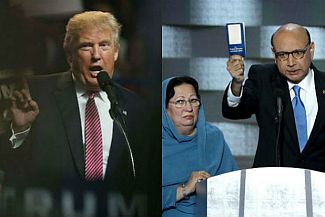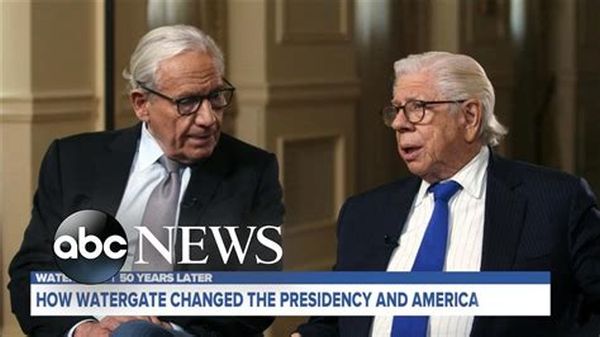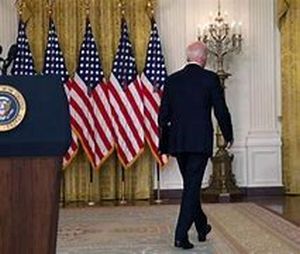The End of the News
From The New CriterionSince I first learned to read, I have loved newspapers. When my infant hands first became capable of forming letters that looked a bit like typescript, I eagerly produced for the delectation of my closest relatives a single sheet of something I called The Bowman News. It was modeled on our small-town daily paper at which my great aunt worked as an editor, proofreader and occasional reporter. She would sometimes take me to see the presses and the linotype machines and the “hot metal” being cast, one slug of which was produced with my name on it in 18 point headline caps, which I then used with a stamp pad in order to see my own name in print for the first time. What a thrill I thought it to join, even in such a small way, the company of those I thought of as the journalistic immortals — now, alas, long forgotten, even by me.
In all the years since that time, I have never been without at least two newspapers delivered to my house every day, and during the years of my adulthood the number has more usually been four or five. Since the translation of printed into on-line versions, I have continued to “take in” (as people once said) a couple of printed papers for old times’ sake, even though I now rarely consult them, preferring to race through their cyber counterparts for an hour or so each morning to earmark those few stories that I might want to go back and consult some day, in the unlikely event that I will ever have the leisure to do so.
The number of such stories has lately been considerably reduced, since more and more of those on my screen fall into one of two categories of the Great Unreadable: either I know already what they have to say or I don’t believe them. Or both. And both are a result of uncontrolled bias. During most of my life-long love affair with newspapers, I have been well enough aware of their biases, both in what they choose to cover and, more importantly, what they choose not to cover. How can one not be? But, like most people, I have usually found it no great hardship to make allowances for these biases in choosing what to believe and what not to believe in what I read. It is — or, rather, was — like making a calculable allowance for wind-speed in ballistics or the weight of one’s clothes when getting on the scale.
Older journalists, at least, then had a conscience about such things, having been trained to keep themselves and their opinions out of the news, even if they weren’t always over-scrupulous about doing so. There might, in those days, even have been the occasional Republican among them. Then, too, the reader could always counter-program, as it were, and read one or more of the little, out of the way journals which had a different set of biases from those of the newspapers — and which acknowledged these biases as well as those they were answering. These fringe publications might also give attention to matters that the rest of the media ignored as ill-fitting with their “narrative.”
That “narrative,” however, turned out to be the agent of corruption, or what the poet Tennyson called
the little rift within the lute,
That by and by will make the music mute,
And, ever widening, slowly silence all.
Tennyson was writing about mistrust in love, and how the smallest amount of the former can destroy the latter. But the media’s narrative imperative also gives rise to a species of mistrust — since you know in advance that everything in the narrative is there for its sake and not because it is either true or important or genuinely new — and it has destroyed my love of the papers along with the very idea of “the news.”
To be sure, the end of the news has been a long time coming, but the current presidential campaign has finally put the pillow over its face and finished it off. To call the constant, open and unrelenting hatred of the media for Donald Trump a bias is to be guilty of the grossest sort of understatement. Even much of the anti-media made up of conservative and other fringe publications has joined in what amounts to an orchestrated hate campaign — on the grounds, presumably, that Mr Trump “objectively” deserves to be hated.
Whether he does or does not, however, is beside the point. The hate-Trump trope has become just another media narrative into which all other information about the candidate can and must be funnelled — and off of which he can legitimately play to his own advantage by citing it as evidence of how he is hated by the country’s elites and self-appointed moral arbiters. Conservatives, of all people, should beware of mimicking the self-conceit of their one-time adversaries in the mainstream press and purporting to speak on behalf of objectivity and truth in properly non-factual matters, merely because of who they are.
Such arrogance ought to make the famously bumptious Mr Trump look almost humble by comparison, but it doesn’t because we are now so used to it. Our political culture as a whole, led by the self-righteous media, has been plunged into one of its periodic fits of moralizing — out of which, at least on this occasion, it is hard to see any good coming. On the contrary, I would argue that it is no accident that this moral fever coincides with the nomination of not one but two of the most morally compromised candidates ever to seek the country’s highest office. What else should we have expected from the constant devaluation of our own moral stock?
We have grown so used to the flinging back and forth of moral calumny between candidates of different parties and, now, even between candidates of the same party, so fierce in disputing the title to the moral high ground, that none but the most fanatical of the combatants even believes in the existence of such high ground anymore. In the view of most voters, the imputation of immorality and corruption has been detached from the reality and become no more than the cost of doing political business. For this, too, we have the media and its long obsession with scandal to thank. So assiduous have they been in seeking out anything that can pass for wrong-doing, particularly on the part of Republican candidates (remember Mitt Romney’s putting his dog on the roof of his car?), as the only salient feature of their candidacy that when real wrong-doing comes along it only looks like politics as usual.
To the dwindling number of us who believe that the moralization of politics is not only ill-advised but also — and especially since being mistaken has become tantamount to “lying” (see “Lexicographic Lies” in The New Criterion of October, 2012) — socially and intellectually destructive of the ties that normally bind us together in one polity, even in one family, this lamentable development has made truth all but inaccessible. It is now already the case that one can hardly believe anything one reads in the papers, because the political agenda which has produced it has become so obvious and unashamed — and not only when it comes to Mr Trump. Thus when we read in The New York Times that some gaggle of “experts” has proven perennial budget deficits to be good for us, or to make, presumably irrefutably, “The Case for More Government and Higher Taxes,” we must wonder if even those who already devoutly believe in such things can be quite unashamed to cite such experts, knowing that they have been led out of academic obscurity and given a public forum to tell the media and their devoted consumers just what they want to hear.
Nor is it just a question of political bias. When I read in The Washington Post now that “science” has discovered flossing your teeth to offer no benefits to dental health, or that “Millennials” are no longer “having sex” as much as previous generations did, I automatically assume that these things are untrue in any meaningful sense — since the words “science” and “Millennials” in them (not to mention “having sex”) are journalistic constructs designed precisely to be the vehicles for stories like these. They have found their place in our prescribed information diet because they promise the reader privileged access to information at odds with what everybody else knows, or thinks he knows, not because anybody really knows them to be true.
They are what is known as “clickbait” and they function only by virtue of the vast ocean of information now available to journalists, as to everybody else, from which a cup or two of evidence can be ladled out for almost any proposition that promises to shock the reader — or to confirm his prejudices. And it is, of course, the latter which must be the motivation of those, if there are any, who continue to read the political coverage of the mainstream press, since such coverage never shocks or surprises anymore but only sticks to the narrative on either side and tells us over and over again what we are meant already to know about the two candidates: that Mrs Clinton is a “flawed” but “highly-qualified” and “historic” candidate for the office of president, whereas Mr Trump is a very bad man as well as a stupid ignoramus who is entirely “unfit” to occupy that office — to use the word chosen by its present incumbent.
There’s an internet shorthand abbreviation, MRDA, that can describe this would-be barb. It stands for “Mandy Rice-Davies Applies.” Miss Rice-Davies, you may remember, was one of two famous good-time-girls (as they used to be called) in the Profumo scandal in Britain in 1963 who, when told that Lord Astor had denied having an affair with her, notoriously replied: “He would, wouldn’t he?” Well, MRDA now, up and down our political culture, and as a result we never need pay attention again to anything either a politician or a journalist has to say. So long as we know which side he’s on, we already know what he thinks, and the question of Mr Trump’s (or anyone else’s) fitness for office becomes insusceptible to serious discussion.
Is it possible to see this political feeding-frenzy, apparently encouraged by Mr Trump himself, as as an example of the man’s strategic genius? Could it be a kind of rope-a-dope strategy by which the media and others opposed to him are invited to wear themselves and what remains of their credibility out by flailing away at the candidate until he is in a position to turn the tables and point to the obvious truth of his own claims of bias against them? If so, it is a high-risk strategy. On the eve of the 2012 election, Charles Moore wrote in the London Daily Telegraph that “It is Mitt Romney’s ‘gaffes’ that should win him the election” — because “what the media see as a ‘gaffe’ is often, in reality, a challenge to the dominant orthodoxy.” That’s true enough, but it turned out in that case that a majority preferred the dominant orthodoxy. For all the upsets Mr Trump has already caused to that orthodoxy during the past year, it is hard to see how his own gaffes, so much more spectacular than Mr Romney’s, are going to produce a different result, even though he has cunningly undertaken to supply so many of them that no individual gaffe can be expected to have much effect.
A possible exception is the affair of the family Khan, which was a perfect example of what R.R. Reno, writing in the August number of First Things well before it happened, called “bigot-baiting.” It’s such an obvious trick that you almost might expect it not to work. You simply get someone distinguished by race, religion, “gender”, sexual orientation or moral unassailability through suffering to attack your alleged bigot — in this case Donald Trump — and, when he hits back (as Mr Trump seems incapable of not doing), you point to his counter-attack as an example of his bigotry. Mr Khan had three of the five qualifications going for him, being Muslim, Arab and the father of a serviceman killed in Iraq, and so obligingly flushed out the pantomime (or pro-wrestling) villain when the latter issued on the fly an unusually obtuse response.
Substantively, the thing was an entirely empty gesture. Mr Khan criticized Mr Trump for not having “sacrificed” as he had — which was not only irrelevant but equally true of the candidate he was ostensibly supporting — and for ignorance of the Constitution, even though he himself apparently thought there was a provision in that document, as there is not, which would have prevented the exclusion of Muslim immigrants. If he felt he had to say anything at all, the target of his criticisms might have pointed these things out — not that it would have precluded the inevitable attacks on his bigotry. Instead he made it easy for the bigot-baiters by comparing, absurdly, Mr Khan’s sacrifice to his own in the “hard work” that had been required to build up his businesses and create thousands of jobs.
How could Mr Trump not have seen the trap that had been laid for him? How could he have walked straight into it? Well, maybe that was part of the plan. Maybe he thought the trap so obvious that even the dullest-witted of his would-be supporters could see it and resent the media’s scandal-machine for setting it more than they resented him for falling into it. Giving the public that much credit seems pretty dubious to me, but then I suppose I must count as one of those elitists, resentment against whom Mr Trump has long been courting.
This does not prevent me from reflecting, however, that if there has been no other benefit to the Republic from Donald Trump’s candidacy, it has shown us the extent to which our political culture is now based on what the British have lately come to call “virtue-signaling” but what our forefathers had a shorter and ruder word to describe: namely, cant — the ostentatious parade of one’s own goodness or holiness (or sacrifices) as a reproach to one’s putative moral inferiors.
The media, so alert to hypocrisy in every other way, are blind to this hypocrisy, because it is their own — as well as that of the elite that they represent and that Donald Trump has remained remarkably, perhaps suicidally consistent in running against. His willingness to play the villain or “heel” in this factitious moral drama can be read as a protest against that hypocrisy and empty virtue-signaling. I wonder if I can be the only one who, though I would prefer a virtuous president (in default of a merely gentlemanly one), wishes him well for this reason alone. Or this and the off-off-chance that he might shame the media into reporting the news again, instead of their ever-loving narrative.
Discover more from James Bowman
Subscribe to get the latest posts to your email.







